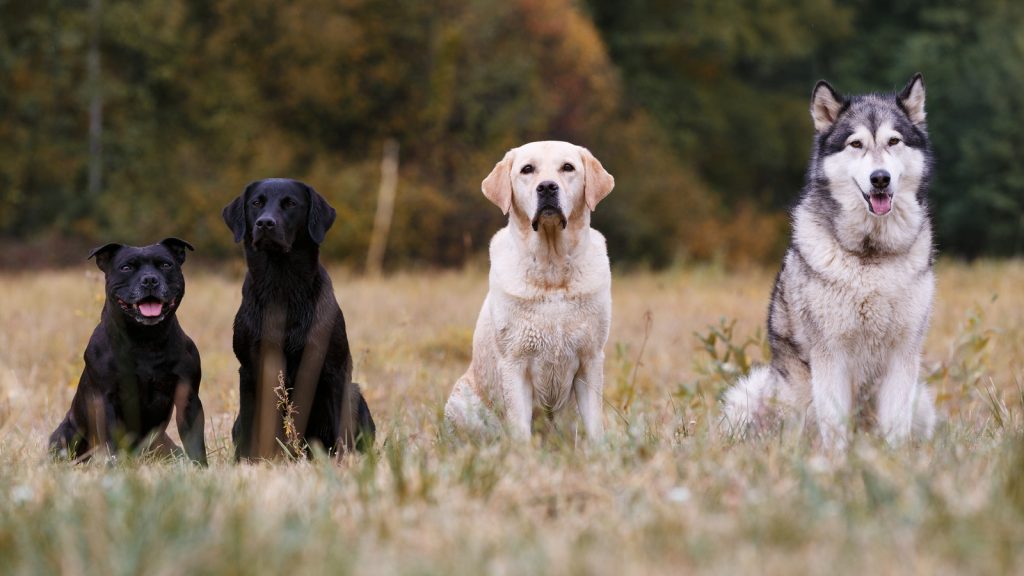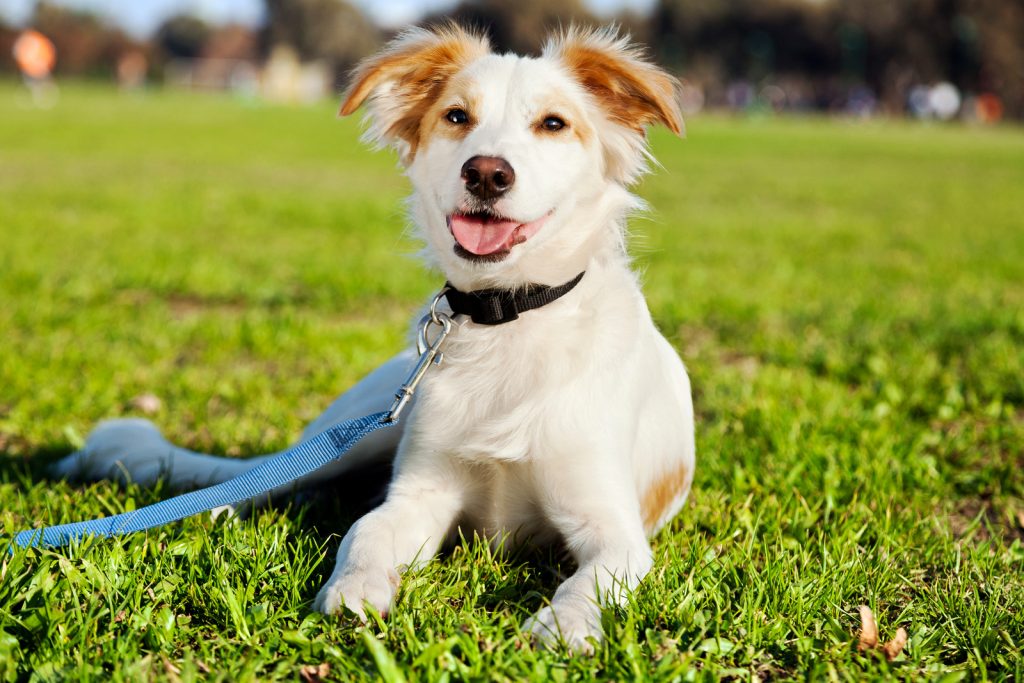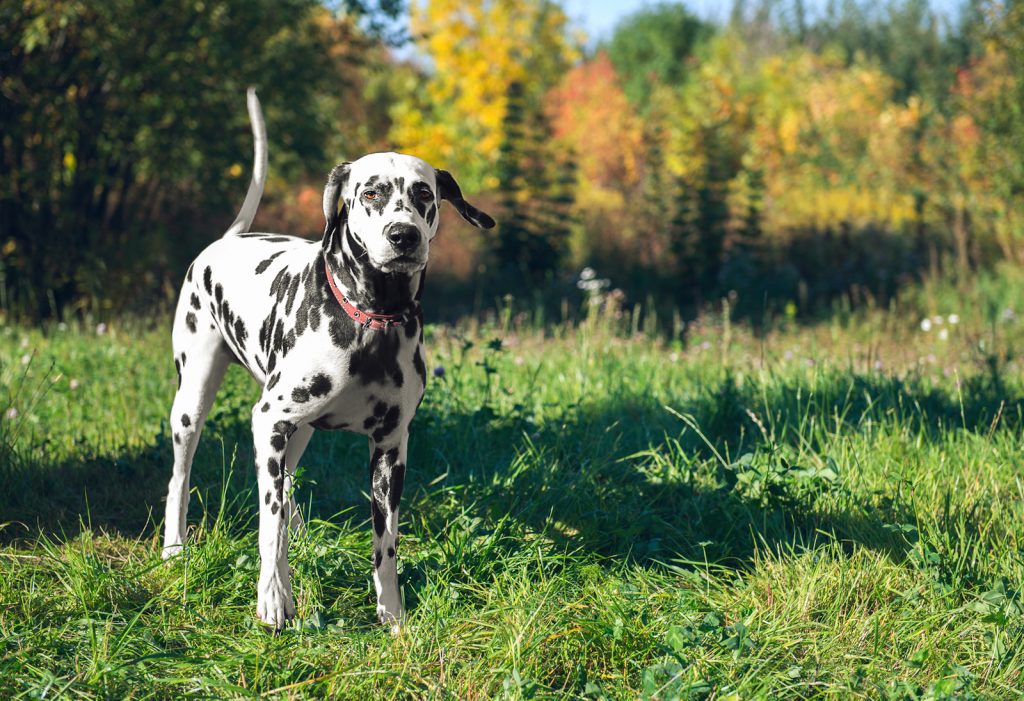Your guide to choosing the right companion.
If you’re thinking of getting a dog, it may seem like a daunting task to choose the right companion for your home. There’s a huge range of different breeds out there, not to mention lots of wonderful mixed breed dogs as well! The right choice for you will depend on your lifestyle and situation. To help you out, here’s a brief run-through of what to factor into your decision and an overview of the different classes of dog breeds.

Things to consider before getting a dog
Before thinking about the different breeds, the very first question to answer is ‘should I get a dog?’ It may sound obvious, but it’s important to be sure you’re able to take on the responsibility that comes with a canine companion.
When you’re considering this, it’s best to think about how to look after a dog and then work out whether this will fit into your routine long term. Check out our guide on how to get a dog to find out what you’ll need to consider.
Choosing a breed of dog
There are loads of dog breeds to choose from – in fact, an amazing 218 breeds are now registered with the Kennel Club! Different breeds vary in temperament, size, appearance, lifespan and what health issues they may be predisposed to. If you’re choosing a breed of dog, it’s worth taking all of these factors into account.
Temperament
Many character traits can vary between different breeds, including their protective instincts, friendliness, stubbornness, and how sociable and trainable they are. Some breeds are known to be better than others with children, and some will need more physical exercise and mental stimulation to keep them happy and out of mischief. So, if you’re looking for a new pooch, it’s important to choose a companion whose character and needs fit in with your lifestyle.
Though temperament does differ between breeds, it’s important to be aware that there’s still a lot of variation between individuals within a given breed. This means that while you can get an idea what character a purebred dog might have, it’s never possible to predict it fully! Also, while we can draw generalisations in terms of temperament and say some breeds are more friendly or trainable than others, all dogs will need proper socialisation and training in order to become a good companion.
Size
Dog breeds vary dramatically in size – in fact, a giant Newfoundland can weigh 35 times as much as a tiny Chihuahua! When you’re deciding which type of dog is right for you, think about the amount of space in your home and garden. Your dog will need a comfortable bed large enough to stretch out in, so consider where you will put a small or large dog bed in your house, as well as a puppy crate of the appropriate size if necessary and all the other bits and bobs such as food bowls, water bowls and toys. There’s also strength to think about: some larger dogs can be very powerful when they’re boisterous and it’s important to be sure that everyone looking after your new friend will be able to cope with them!

Grooming
Grooming is another consideration when choosing a breed of dog. Some dogs such as the Old English Sheepdog have long thick coats that require a lot of brushing, whereas other short-haired breeds have more low-maintenance coats. Depending on the breed, you may need to take your new pet to the groomer’s regularly for clipping. It’s not just the coat to think about when it comes to grooming though, as some dogs with short noses may also have folds of skin on their faces that need frequent cleaning.
Lifespan
Expected lifespan also varies between different types of dogs, with certain larger breeds such as the Irish Wolfhound typically living to only 7 or 8, while other smaller breeds such as the Jack Russell Terrier and Dachshund commonly reach their teens. When you’re taking on a canine companion, it’s important to think about your future plans and be confident you’ll be able to care for your new friend for the rest of their days.
Health conditions
Certain dog breeds are predisposed to specific health issues, and this is an important point to consider when you’re getting a dog. For example, short-nosed breeds such as the Pug and French Bulldog are predisposed to respiratory problems, while some larger breeds such as the German Shepherd Dog and Labrador are more at risk of hip dysplasia, a condition that can result in arthritis.
For some inherited conditions such as hip dysplasia and certain eye problems, the British Veterinary Association and the Kennel Club run special screening schemes so breeders can check the sire and dam for these conditions prior to breeding. If you’re buying a new puppy, it’s worth looking up what health screening schemes are relevant and asking your breeder for information on the parents of the pup.
Which dog breed is best for me?
If you’re thinking of taking on a new dog, it’s worth considering all the factors outlined above to decide what type of dog will fit in with your lifestyle and situation. Remember that you don’t necessarily have to get a pedigree though – mixed breed dogs can be lovely too. While it may be harder to predict their personality, you can get an idea of their likely character from their parentage. When it comes to health issues, mixed breed dogs may be less likely to develop certain breed-associated conditions, though this is only a very general rule and the risk of specific health issues varies between individuals.
If you choose to go for a pedigree dog, it may be helpful to think about different ‘groups’ of breeds when you’re working out which is right for you. The Kennel Club classifies dog breeds into seven categories: Terrier, Hound, Gundog, Working, Pastoral, Toy and Utility.
Terriers
Terriers were initially bred to hunt vermin such as rats, so many of these dogs still retain the instincts to kill prey and to dig holes (or disappear down them!). They’re generally intelligent and active dogs, and they have a reputation for being tough and brave. Though some terriers such as the Jack Russell are small, they still need a fair amount of exercise to keep them happy. Despite their hunting instincts, terriers can still be friendly with people and some breeds such as Staffordshire Bull Terriers and West Highland White Terriers are known for being good family pets.
Hounds
Hounds were also bred to hunt, although in different ways. Scent hounds such as Bassetts and Beagles were bred to track game with their excellent sense of smell, while sighthounds like Greyhounds are built for speed to chase fast prey. This instinct can still be fairly strong in Greyhounds and it’s important to be careful about exercising them off the lead, as they may not be able to resist the urge to chase small animals. These dogs are often affectionate and loyal companions, though they can have a sensitive temperament.
Gundogs
In contrast to terriers and hounds, gundogs were bred to find live game or retrieve game after it has been shot. With a long history of working with people, they’re generally amenable characters and often make good family pets. The most popular gundog is the Labrador Retriever, known as one of the best dog breeds for families with children. Other dogs in this class include Cocker and Springer Spaniels, both active and intelligent dogs that need lots of exercise. Many gundogs are still used as working dogs today, and those dogs with busy lifestyles may benefit from a dog food designed for active or working dogs.
Working
Dogs in the working group were mainly bred for guarding or for search and rescue. With these tasks, it’s no surprise that some of the biggest dog breeds are found in this group and they typically need a decent amount of exercise. Some breeds in this class such as the Rottweiler still have a guarding instinct, and it’s important to be sure you can give them the training and socialisation they need to make friendly and approachable pets. The Bernese Mountain Dog and Leonberger are other working dogs known as ‘gentle giants’ and these are typically very good with children. Again, particularly active dogs or those who work may benefit from a food designed to suit their lifestyle.
Pastoral
The Pastoral group includes breeds that were designed to herd livestock such as the Border Collie and German Shepherd Dog. These canines are generally very intelligent and active, so they need to be kept busy with lots of play and exercise. Without enough mental stimulation and physical activity, they can sometimes divert their energies into destructive behaviour. However, they’re highly trainable, and provided they have enough to keep them occupied they can make fantastic pets. Since many dogs in this class have energetic lifestyles, they may also benefit from a specially designed dog food.
Toy
As the name suggests, Toy dogs are small in size, but they’re often big on character! Many of these breeds were intended purely as companions, though some such as the Yorkshire Terrier were initially bred as hunters. Some Toy dogs have coats that need a lot of maintenance, so it’s important to think about whether you’ll have the time to give them all the grooming they need. One of the most popular Toy breeds is the Pug: these dogs typically have a lovely sociable nature, though their short noses do put them at greater risk of some respiratory health issues.

Utility
The Utility category is a bit of a ‘catch-all’: these dogs were bred for a particular purpose but not included in the other categories. As such, there is a very diverse range of breeds in this class. Examples include the Standard Poodle, a very popular breed with an intelligent and affectionate temperament, and the English Bulldog, a good-natured dog that can make a friendly family pet. However, English Bulldogs are predisposed to a number of health conditions including breathing problems and joint issues, so it’s important to research the breed thoroughly before taking one on.
Love your pets? We do too! Join in the conversation over on our Facebook page.


